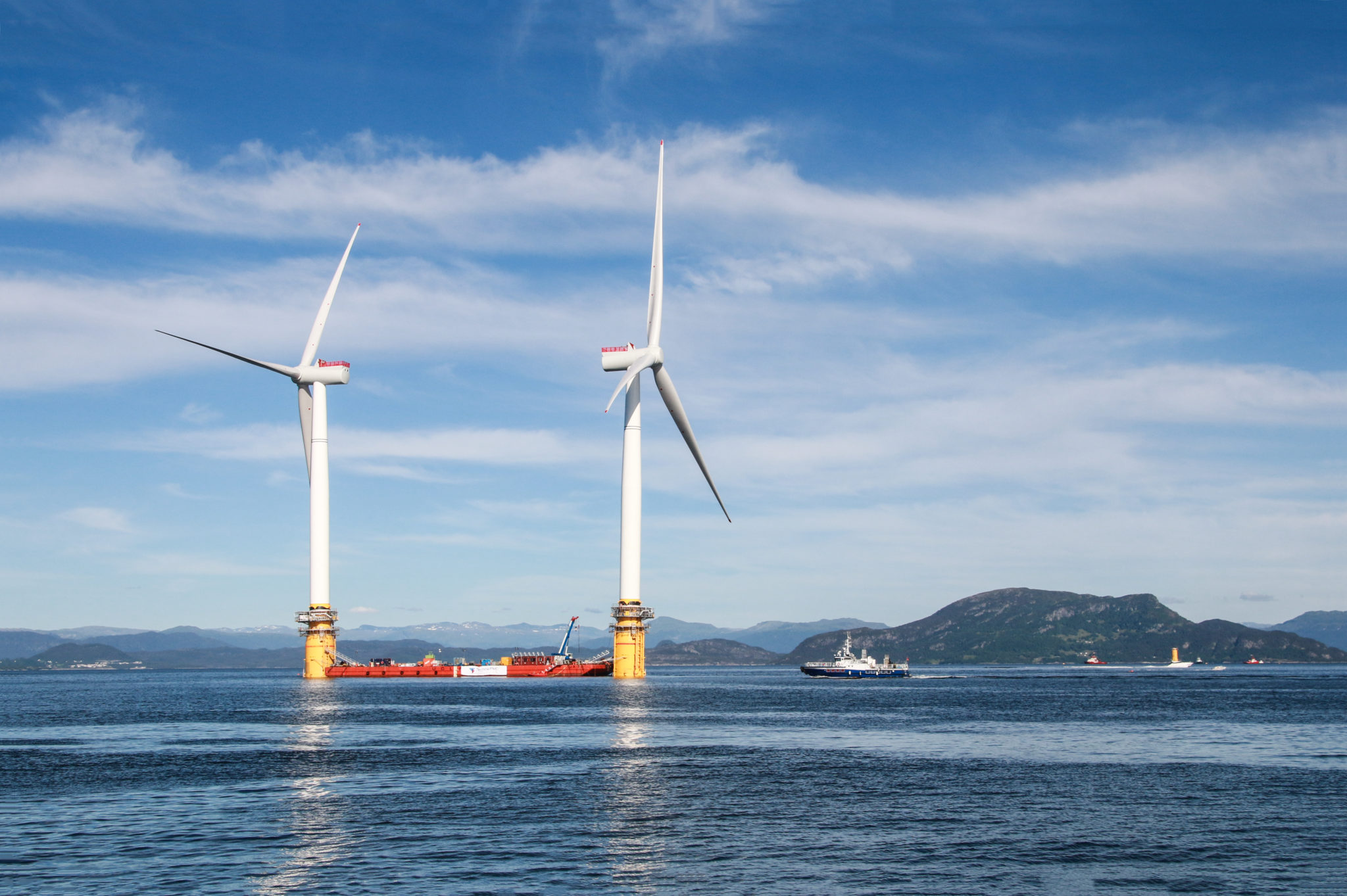Energy and Utilities Update | 19 June 2020
Published on 19th June 2020
In this edition we look at several Ofgem open letters outlining its approach to regulatory compliance in light of Covid-19, Ofgem's proposal for new RIIO licence conditions, a government consultation on proposed transmission licence exemptions for offshore wind farm generators, and more.

Ofgem confirms that normal regulatory rules will apply from 1 July
On 8 April 2020, Ofgem sent open letters to electricity and gas network operators and suppliers outlining its flexible and pragmatic approach to regulatory compliance in light of the disruption caused by the Covid-19 pandemic. On 16 June, the energy regulator wrote again to electricity and gas network operators and suppliers, as well as other interested stakeholders, setting out its updated approach to regulatory arrangements as part of the transition towards a 'new normal'.
In these letters Ofgem outlined its overarching expectations, which will apply from 1 July, that:
- network companies shall use all reasonable endeavours to clear "at pace" the backlog of work which was de-prioritised as a result of the pandemic;
- the Electricity System Operator is expected to meet all of its licence obligations;
- electricity suppliers should:
- be easy to contact, and messaging should no longer aim to deflect non-emergency contact;
- provide support for customers who are struggling to manage their energy costs, including ensuring that any debt management processes are fair;
- actively plan and prepare for non-emergency site visits and re-commence non-emergency installations which have been paused; and
take all reasonable steps to deliver the smart meter rollout by the end of the current smart meter framework.
This second set of open letters (available here, here and here) each state that Ofgem will "continue to monitor the impact of Covid-19 on the industry, and will be pragmatic in any response to unpredictable and changing circumstances".
Though interested parties are expected to comply with the requirements listed above, the letters state that there will be an exception where works and services cannot be delivered to the required standards due to the need to comply with government guidance around Covid-19 and to keep customers and staff safe.
Ofgem proposes new RIIO licence conditions to promote digitalisation
As part of its wider objective to modernise the energy system through digitalisation, Ofgem has published an open letter in which it proposes to introduce new licence conditions into the RIIO-2 price controls for transmission, gas distribution and the Electricity System Operator from April 2021, and into the RIIO-ED2 price control from April 2023.
The new licence condition will require network companies to comply with "Data Best Practice" guidance which is being developed by Ofgem in collaboration with the Department for Business, Energy and Industrial Strategy, along with Innovate UK.
Ofgem is also proposing to introduce a licence condition requiring network companies to publish updates to their digitalisation strategy annually and to report regularly on progress against their action plan. Ofgem has asked that initial strategies and action plans be improved upon, and the updated versions published by 31 December 2020.
Further details on each of the proposed licence conditions is expected in July.
Consultation on proposed transmission licence exemptions for offshore wind farm generators
On 12 June 2020, the government launched a consultation on a proposed transmission licence exemption order for offshore wind farm generators affected by Covid-19. In launching the consultation, the government noted its ability under the Electricity Act 1989 to make an exemption from the general requirement that a transmission licence must be held by a party engaging in the transmission of electricity.
New offshore generators are typically awarded an 18 month commissioning period before they are required to hold a transmission licence. Offshore wind farm projects in tender rounds five and six of the offshore transmission owner regime have been impacted by delays caused by the Covid-19 pandemic and are therefore at risk of participating in unlawful transmissions of electricity as a result.
The proposal would grant generators additional time to complete asset transfers where the government is satisfied that the transfer process has been materially impacted by Covid-19. In addition, Covid-19 related disruption must have increased the risk that the generator, having taken reasonable steps to complete the transfer, is unable to complete the process in the required timeframes. A successful generator will receive a time limited exemption of between 3 and 12 months depending on the impact that Covid-19 is likely to have on that particular project.
The deadline to respond to the consultation is 10 July 2020.
Local Electricity Bill successfully introduced to Parliament
We previously reported on Power for People's Local Electricity Bill, which was successfully introduced into Parliament on 10 June 2020. It was unopposed in Parliament, and its second reading is scheduled for 10 July 2020. 150 MPs have pledged their support for the Bill since it was first proposed.
As we have reported previously, the Bill aims to empower local communities by enabling new community energy companies to sell the energy they generate directly to local people. It is hoped that these measures will assist economic recovery from Covid-19, as well as helping to accelerate the transition to clean energy and balance the grid through an increase in decentralised generation models.
Government announces £12 million for electric vehicle charging research
The government has announced that it will commit £12 million of funding for research into zero emissions transport, including electric vehicle (EV) charging infrastructure.
The majority of the funding (£10 million) will be allocated to a new Zero Emission Vehicle Innovation Competition, which will invite applicants to apply for project funding to support advancements in hydrogen vehicles, battery EVs and EV charging infrastructure.
The remaining £2 million will be provided to small and medium-sized businesses that are conducting research into zero-emission vehicles, which could include areas such as battery technology. It is hoped that the funding will support local economic growth through research and development projects and could help to create at least 6,000 skilled jobs.
This announcement may provide further confidence in the EV market, which has already been bolstered by recent statements from industry operators (such as distribution network operator, WPD) which predict significant growth in the EV charging infrastructure market.
Tesla granted electricity generation licence
Ofgem have published a notice which confirms that US electric vehicle and battery storage company Tesla has been granted a licence to generate electricity in the UK following its application in May.
New electric vehicle battery technology claims to run six times further than existing batteries
Contemporary Amperex Technology Limited (CATL), the Chinese battery manufacturer which supplies Tesla and Volkswagen, has developed an EV battery which it estimates can last for a total of 1.24 million miles and for a duration of 16 years.
This represents a significant increase from the batteries typically used in the industry. Currently, EV battery lifespans are limited to approximately 200,000 miles, and are supported by warranties from battery suppliers for the first 100,000 - 150,000 miles or eight years, according to Bloomberg NEF. Extension of EV battery lifespans provides greater potential for second-life capabilities of EV batteries, for example, by re-use in a second EV vehicle. This would lower the cost of owning an EV and remove the need for battery replacement during the lifetime of the EV, thereby addressing two significant disincentives for potential EV consumers. CATL estimate that the cost of its new battery is approximately 10% higher than those currently used in EVs.
Developments in EV batteries could also prove crucial in recovering sale momentum for EVs in the aftermath of the Covid-19 pandemic, particularly as European governments announce significant stimulus packages for their domestic EV markets, which we have previously reported on.
CATL has not confirmed whether any contracts for supply of its battery have been signed, although it has said that the batteries are "ready to produce".



